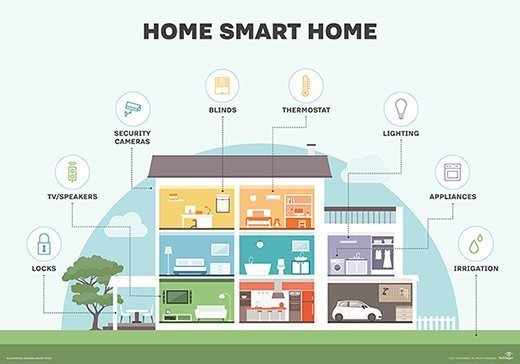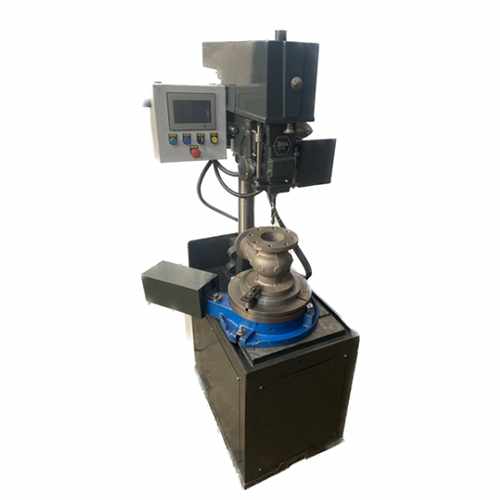
Introduction
The Russia Real Estate Market long characterized by traditional practices and established players, is undergoing a significant transformation. A dynamic wave of PropTech startups is emerging, injecting innovation and efficiency into every aspect of property transactions, management, and development. These tech-driven companies are challenging conventional norms, offering solutions that streamline processes, enhance transparency, and ultimately reshape how Russians interact with real estate. This article delves into the burgeoning rise of PropTech startups in Russia, exploring their disruptive strategies, the key innovations they are introducing, and the overall developments they are driving within the market.
Understanding the PropTech Revolution in a Russian Context
PropTech, a portmanteau of "property" and "technology," encompasses the application of digital technologies to the real estate sector. Globally, PropTech startups are revolutionizing everything from property search and valuation to construction management and smart building solutions. In Russia, this movement is gaining significant traction, driven by factors such as increasing internet penetration, a growing appetite for digital services, and a desire for greater efficiency and transparency in real estate dealings.
The traditional Russian real estate market has often been perceived as opaque and bureaucratic. PropTech startups are addressing these pain points by offering user-friendly platforms, data-driven insights, and automated processes that simplify and expedite real estate activities for both consumers and industry professionals.
Key Areas of Disruption by Russian PropTech Startups
Russian PropTech startups are making their mark across various segments of the real estate value chain. Here are some key areas where their disruptive influence is most evident:
1. Online Property Marketplaces and Search Platforms:
The Challenge: Traditionally, finding properties in Russia involved navigating fragmented listings, relying heavily on real estate agents, and often lacking comprehensive information.
The PropTech Solution: Startups are developing sophisticated online platforms and mobile applications that aggregate property listings from various sources. These platforms often feature advanced search filters (e.g., location, price, size, amenities), high-quality photos and virtual tours, interactive maps, and neighborhood information.
Examples: Several Russian startups are focusing on creating user-friendly interfaces and leveraging data analytics to provide personalized property recommendations, making the search process more efficient and transparent for buyers and renters. They are also incorporating features like online booking for viewings and direct communication with sellers or landlords.
2. Property Valuation and Data Analytics:
The Challenge: Accurate property valuation in Russia could be subjective and time-consuming, often relying on manual appraisals and limited comparable data.
The PropTech Solution: Startups are leveraging big data, artificial intelligence (AI), and machine learning (ML) to develop sophisticated property valuation tools. These platforms analyze vast datasets of historical transaction prices, property characteristics, location data, and market trends to provide more accurate and instant property valuations.
Examples: Russian PropTech companies are creating tools that allow users to get an estimated property value online, helping buyers and sellers make informed decisions. They are also providing real estate professionals with in-depth market analytics and forecasting capabilities.
3. Property Management and Operations:
The Challenge: Managing rental properties and large residential or commercial complexes in Russia often involves cumbersome manual processes for rent collection, maintenance requests, and tenant communication.
The PropTech Solution: Startups are developing software solutions for property management that automate tasks such as rent collection, tenant screening, maintenance scheduling, and communication. These platforms improve efficiency, reduce administrative burdens, and enhance the overall experience for both landlords and tenants.
Examples: Russian PropTech companies are offering mobile apps for tenants to report issues and pay rent online, and platforms for property managers to track maintenance requests and manage finances effectively. Smart building technologies, integrated by some startups, further optimize building operations and energy consumption.
4. Real Estate Investment and Crowd funding:
The Challenge: Investing in Russian real estate traditionally required significant capital and often lacked accessibility for smaller investors.
The PropTech Solution: Startups are introducing platforms that facilitate fractional ownership and real estate crowd funding, allowing individuals to invest smaller amounts in larger projects. This democratizes real estate investment and opens up new opportunities for a wider range of investors.
Examples: Russian PropTech platforms are emerging that allow users to invest in specific real estate projects with relatively low entry barriers, potentially earning returns through rental income or property appreciation.
5. Construction Technology (ConTech):
The Challenge: The construction industry in Russia can face challenges related to efficiency, cost overruns, and project delays.
The PropTech Solution: While still in its early stages compared to other PropTech segments, ConTech startups in Russia are beginning to offer solutions such as building information modeling (BIM) software, project management tools, and drone-based site monitoring to improve efficiency, collaboration, and cost control in construction projects.
Examples: Some Russian startups are developing platforms that streamline communication and workflow on construction sites, while others are exploring the use of drones for surveying and progress tracking.
Factors Driving the Growth of PropTech in Russia
Several factors are contributing to the burgeoning growth of PropTech startups in Russia:
Government Initiatives: The Russian government has shown increasing interest in digitalization across various sectors, including real estate, which can create a favorable environment for PropTech adoption.
Investor Interest: Venture capital firms and angel investors are recognizing the potential of the Russian PropTech market and are increasingly providing funding to promising startups.
Demand for Efficiency and Transparency: Both consumers and businesses are seeking more efficient and transparent ways to engage with the real estate market, driving the adoption of PropTech solutions.
Technological Advancements: The increasing availability and affordability of technologies like AI, ML, big data, and cloud computing are enabling the development of innovative PropTech solutions.
Addressing Market Pain Points: PropTech startups are directly tackling the inefficiencies and complexities that have long plagued the traditional Russian real estate sector.
Increased Internet and Mobile Penetration: A large and growing internet-savvy population provides a significant user base for digital real estate services.
Challenges and Opportunities for Russian PropTech Startups
Despite the promising outlook, Russian PropTech startups also face certain challenges:
Resistance to Change: The traditional real estate industry can be resistant to adopting new technologies and processes.
Data Availability and Quality: Access to comprehensive and high-quality real estate data can be a hurdle for developing effective data-driven solutions.
Regulatory Landscape: Navigating the existing real estate regulations and potential future regulations related to technology adoption is crucial.
Building Trust and Adoption: Convincing users and industry professionals to embrace new digital platforms and processes requires building trust and demonstrating clear benefits.
Competition: While the market is still evolving, increasing competition among PropTech startups is inevitable.
However, these challenges also present significant opportunities:
First-Mover Advantage: Startups that can effectively address market pain points and gain early adoption have the potential to become market leaders.
Untapped Potential: The Russian real estate market is vast, offering a significant opportunity for innovative solutions.
Collaboration with Traditional Players: Strategic partnerships between PropTech startups and established real estate companies can create synergistic benefits.
International Expansion: Successful Russian PropTech startups may have the potential to expand their solutions to other international markets.
The Future Landscape of Russian Real Estate with PropTech Integration
The continued rise of PropTech startups is poised to fundamentally reshape the Russian real estate market in the coming years. We can anticipate the following developments:
Increased Transparency and Efficiency: Digital platforms and data-driven tools will lead to more transparent and efficient real estate transactions and management processes.
Enhanced User Experience: Consumers will benefit from more user-friendly interfaces, personalized recommendations, and seamless online experiences.
Data-Driven Decision Making: Investors and developers will increasingly rely on data analytics and AI-powered insights to make more informed decisions.
Greater Accessibility to Investment: PropTech platforms will democratize real estate investment, allowing a wider range of individuals to participate.
Integration of Smart Technologies: The adoption of smart building technologies will lead to more efficient and sustainable properties.
Evolution of the Role of Real Estate Agents: While technology will automate some tasks, the role of real estate agents will likely evolve towards becoming more advisory and focused on complex transactions and client relationships.
Conclusion
The rise of PropTech startups in Russia marks a pivotal moment for the country's real estate market. These innovative companies are not just introducing new technologies; they are fostering a culture of efficiency, transparency, and customer-centricity. While challenges remain, the momentum behind the PropTech revolution is undeniable. As these startups continue to disrupt traditional practices and introduce groundbreaking solutions, the Russian real estate landscape is set to become more dynamic, accessible, and technologically advanced, ultimately benefiting both industry professionals and consumers alike. The integration of technology is no longer a futuristic concept but a present-day reality that is rapidly transforming how Russia buys, sells, rents, and manages its properties.










Write a comment ...